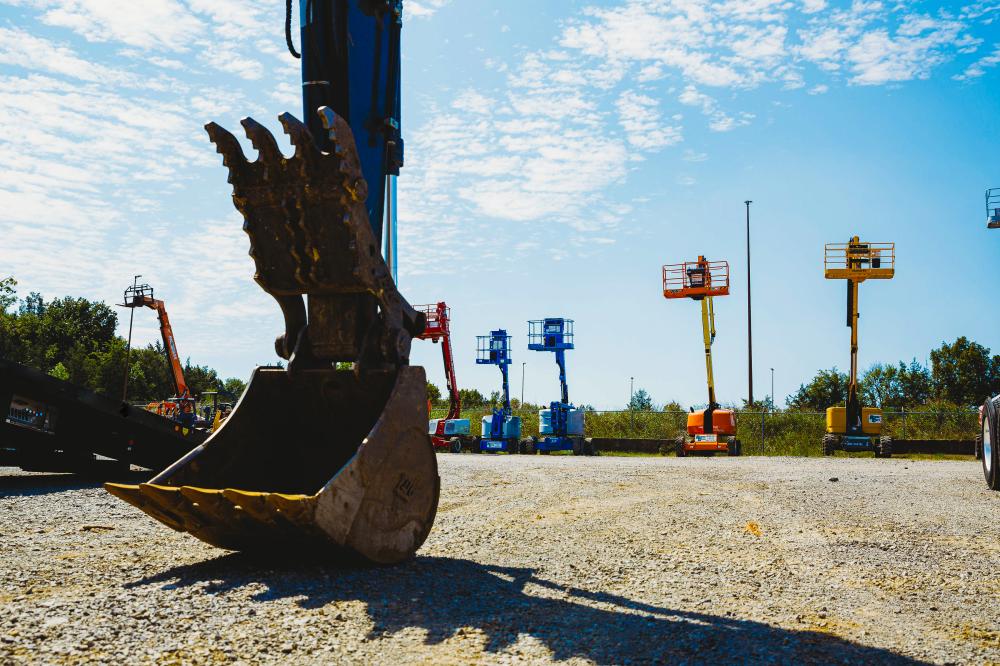Important Tips for Handling Heavy Devices Rental Arrangements and Logistics Properly
Successfully handling heavy tools rental arrangements and logistics is essential for the success of any task that counts on these resources. A detailed understanding of rental terms, paired with exact analysis of devices needs, lays the structure for positive settlements.
Understand Rental Terms
Understanding rental terms is essential for effective hefty devices monitoring. Experience with the details terms of a rental arrangement can considerably affect functional efficiency and cost-effectiveness. Secret parts usually consist of rental duration, repayment framework, and maintenance obligations. The rental period specifies the timeframe for which the tools is leased, influencing budgeting and task timelines. Repayment frameworks often vary, incorporating daily, weekly, or monthly rates, which require specific calculations to avoid unforeseen expenditures.
In addition, it is crucial to comprehend the maintenance obligations described in the contract. Usually, rental business preserve the devices, yet recognizing who is in charge of regular checks and fixings is essential to prevent operational disruptions. In addition, terms might include stipulations worrying obligation for damages or theft, which can have serious financial implications otherwise effectively recognized.

Assess Tools Needs
Evaluating equipment requirements is an important action for any type of job manager intending to enhance resource allotment and enhance functional effectiveness. This procedure involves an extensive assessment of the job requirements, consisting of certain tasks, timelines, and the kind of devices necessary to attain wanted outcomes.
Begin by identifying the extent of the project and the jobs that will be executed. Take into consideration elements such as the surface, the scale of procedures, and any type of possible difficulties that can influence devices selection. Engaging with employee that will run the machinery can provide valuable understandings right into useful requirements and preferences.

Next, examine the capability and abilities of offered devices choices. It is vital to match the ideal devices to the tasks at hand, ensuring that it can handle the anticipated workload without jeopardizing security or efficiency.
Furthermore, factor in the rental period and frequency of use. Recognizing these elements can aid establish whether renting out or buying is one of the most affordable solution. By performing an extensive analysis of equipment demands, job managers can make informed choices that cause improved productivity and minimized operational prices.
Negotiate Successfully
When the tools requirements are plainly determined, the next step entails efficient arrangement with rental firms to secure positive terms. A well-prepared negotiation method is necessary for attaining the very best feasible offer. Begin by investigating numerous rental companies to comprehend their pricing frameworks, supply accessibility, and reputation. This expertise will equip you throughout negotiations and assist you develop reasonable expectations.
When approaching the negotiation table, be clear regarding your needs, consisting of the sort of devices, rental period, and any kind of added services you may need. This transparency allows rental business to supply tailored services that can satisfy your details demands (heavy equipment rental). heavy equipment contractors near me Don't be reluctant to request discounts, especially for long-term rentals or mass orders, as numerous companies agree to use concessions to secure larger contracts
Furthermore, take into consideration bargaining terms associated with maintenance, delivery, and insurance policy charges. These aspects can substantially affect the total expense and must be explicitly described in the rental agreement. Make certain that all agreed-upon terms are documented in creating to stop misunderstandings and secure your interests throughout the rental duration. Effective arrangement not only causes cost financial savings but additionally establishes a favorable connection with the rental firm.
Coordinate Transport Logistics
Coordinating transportation logistics is a crucial aspect of handling hefty equipment rental contracts. Reliable transportation makes sure that tools is delivered promptly and in optimal condition, consequently decreasing downtime and enhancing project effectiveness. To attain this, it is vital to establish a thorough logistics plan that describes the entire transport procedure from pick-up to distribution.
Begin by assessing the specific transportation demands based on the type and size of the devices included - forklift rental. Involve with reliable transportation service providers who focus on heavy equipment to ensure they possess the necessary experience and tools, such as flatbed vehicles or specialized trailers. Go over variables such as weight restrictions, path limitations, and needed permits to avoid unanticipated hold-ups
Moreover, preserve open communication with both the rental company and the transport provider to work with timetables successfully. Verify all details, consisting of pick-up and drop-off times, to guarantee everyone is straightened and prepared. Last but not least, develop contingency strategies to resolve any type of prospective interruptions, such as damaging weather or traffic problems, which may affect the transport timeline. By meticulously working with transport logistics, you can maintain the integrity of your rental arrangement and help with smooth task execution.
Plan for Upkeep and Support

Moreover, it is crucial to communicate directly with the rental service provider concerning maintenance duties. Some arrangements might include maintenance as component of the rental solution, while in my response other cases, the onus might drop on the tenant. Comprehending these terms will help stay clear of unforeseen expenses and liabilities.
Additionally, having accessibility to technological support can be important. Ensure that the rental company supplies 24/7 assistance or an emergency situation get in touch with, enabling for speedy resolution of any type of devices issues. Training your team on correct tools use and regular checks can likewise considerably enhance functional efficiency.
Final Thought
In verdict, efficient monitoring of heavy devices rental arrangements and logistics joints on a complete understanding of rental terms, precise assessment of devices requirements, and experienced negotiation skills. Highlighting clear interaction with all stakeholders continues to be essential in navigating the intricacies of devices service and logistics monitoring.
Effectively managing heavy devices rental contracts and logistics is vital for the success of any kind of project that relies on these resources. By thoroughly examining and recognizing these rental terms, services can make enlightened choices, minimize threats, and make certain that their hefty tools monitoring straightens with task objectives and economic restrictions.Collaborating transport logistics is a crucial aspect of managing heavy tools rental arrangements.In verdict, reliable monitoring of heavy tools rental contracts and logistics hinges on a complete understanding of rental terms, specific evaluation of devices needs, and adept arrangement abilities. Highlighting clear communication with all stakeholders remains critical in browsing the complexities of equipment service and logistics administration.